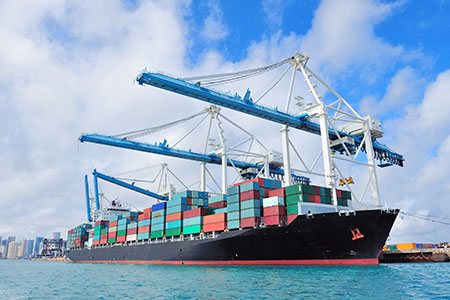
Tuvalu’s main imported goods
Tuvalu, a small island nation in the Pacific Ocean, relies heavily on imports due to its limited natural resources and small land area. The country’s main imported goods are critical to sustaining its economy and meeting the needs of its population. Here’s an overview of Tuvalu’s key imports:
1. Food and Beverages
Tuvalu imports a significant amount of food to supplement its limited agricultural output. Staple goods like rice, flour, sugar, canned fish, and other packaged foods are among the most imported items. Beverages such as soft drinks, juices, and alcoholic drinks are also common imports. These items are essential to meet the dietary needs of the population and cater to the growing dependence on imported food due to the country’s geographical constraints.
2. Fuel and Energy Products
Petroleum products, including diesel, petrol, and kerosene, are among the most important imports for Tuvalu. These fuels are critical for generating electricity, powering transportation, and supporting the country’s fishing industry. The lack of domestic energy resources makes Tuvalu entirely dependent on imported fuels for its energy needs.
3. Building Materials
The scarcity of natural resources means that Tuvalu imports construction materials such as cement, steel, timber, and roofing materials. These imports are vital for infrastructure development, housing projects, and repairs, especially as the country faces frequent climate-related challenges like storms and rising sea levels.
4. Machinery and Vehicles
Tuvalu imports machinery and equipment for various purposes, including transportation, agriculture, and public works. Vehicles such as cars, trucks, and motorbikes are also imported, primarily for government use and private transportation. Small-scale agricultural machinery and fishing equipment are essential imports to support the livelihoods of many Tuvaluans.
5. Consumer Goods
Tuvalu relies on imported consumer goods such as clothing, electronics, appliances, and household items. Due to the small size of the domestic market, most of these products are brought in from nearby countries like Fiji, Australia, and New Zealand. Mobile phones and other communication devices are particularly important for maintaining connectivity in the isolated nation.
6. Medical Supplies and Pharmaceuticals
Healthcare in Tuvalu is largely dependent on imported medical equipment, medicines, and supplies. These items are crucial for addressing the health needs of the population and managing diseases that are common in the region, including diabetes and cardiovascular conditions.
7. Industrial and Fishing Supplies
Fishing is a major economic activity in Tuvalu, and the country imports fishing gear, nets, and boats to support its industry. Additionally, small-scale industrial supplies, tools, and materials are imported for use in workshops and businesses.
8. Educational and Office Supplies
With limited local manufacturing, Tuvalu imports books, stationery, computers, and other educational materials. These imports are vital for supporting the education system and ensuring access to modern learning tools.
9. Climate Resilience and Disaster Relief Supplies
Given its vulnerability to climate change and natural disasters, Tuvalu imports goods that help improve resilience, such as water tanks, desalination units, solar panels, and disaster recovery kits.
Key Trade Partners
Tuvalu’s primary import partners include Australia, New Zealand, Fiji, Japan, and Singapore. These countries provide the majority of the goods needed to sustain the island’s economy and population.
In summary, Tuvalu’s main imported goods reflect its reliance on external support for food, energy, infrastructure, and essential services. As the country faces ongoing challenges from climate change and limited resources, maintaining stable import channels remains crucial for its development and survival.






Leave a Reply